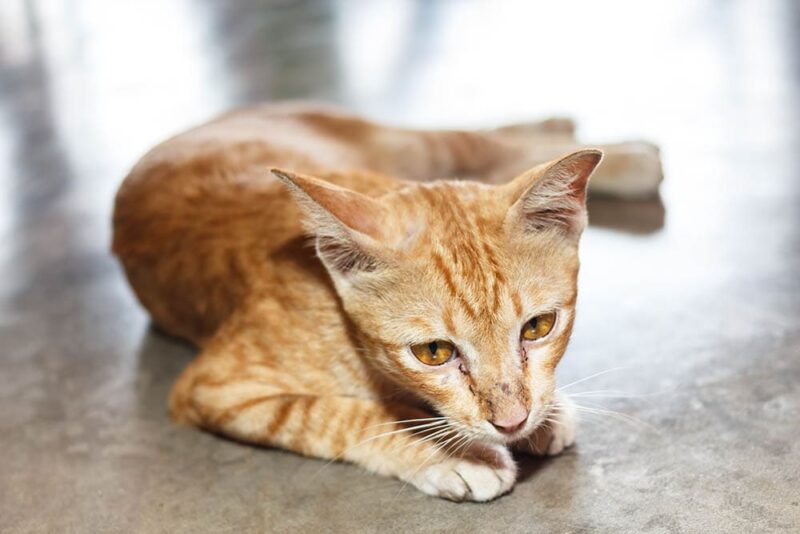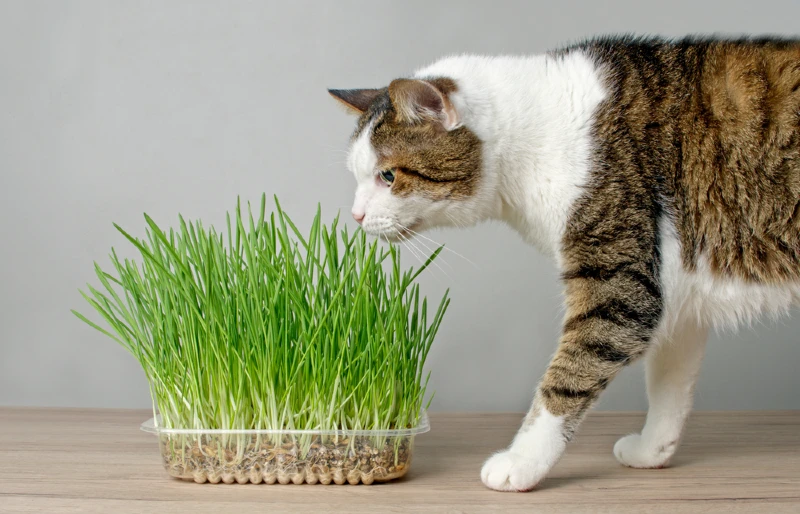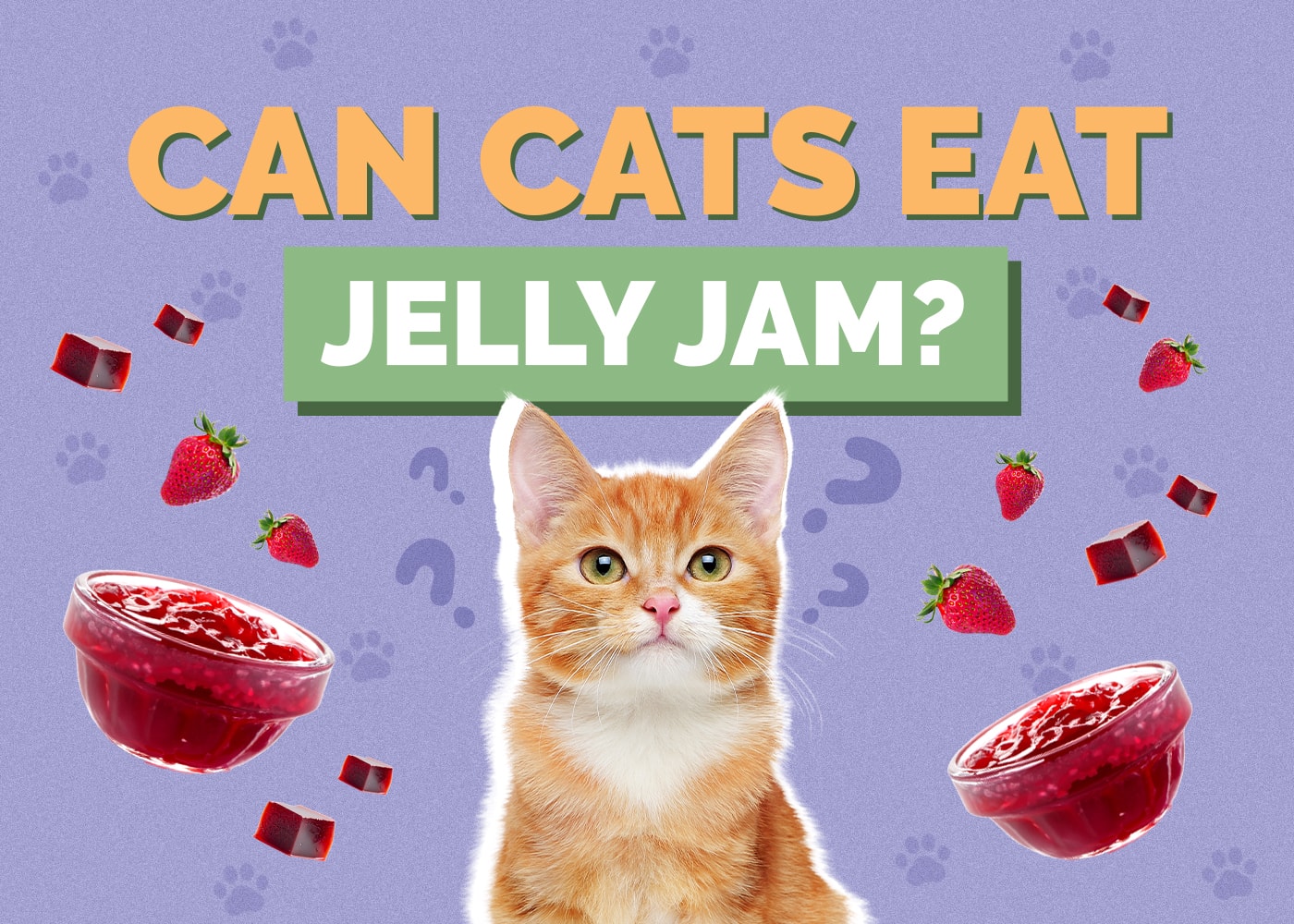8 Vet-Reviewed Reasons Why Your Old Cat Is Meowing So Much: Feline Behavior Explained

Updated on
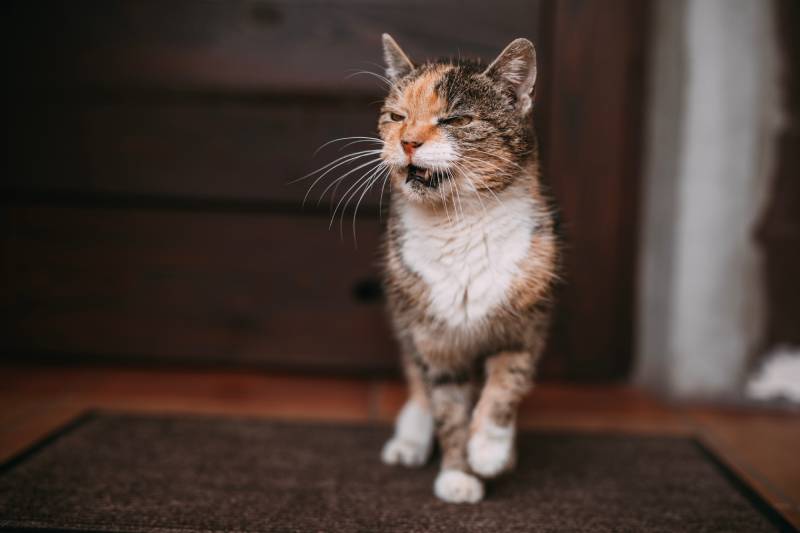
As your cat ages, it’s common for you to notice behavioral changes. But if one of the behavioral changes you’re noticing in an older cat is excessive meowing, you’ll want to take notice.
But what does it mean? Do you need to do anything, and is it something you need to worry about? The truth is that it all depends, it can go from needing more attention or food, to losing their hearing, smell or sight.
Below, we’ll walk you through 8 of the most common reasons an older cat is meowing so much.
The 8 Vet-Reviewed Reasons Why Old Cats Meow so Much
1. They’re Confused
| Likelihood: | Moderate |
| Seriousness: | Moderate/High |
There are a couple of reasons an older cat might be confused. Sometimes, a change of scenery is all it takes, and if this is the case, the meowing should quiet down before too long.
However, it’s also possible that an older cat is suffering from a cognitive decline. If this is the case, they can quickly become disoriented or confused, and they can vocalize this by meowing. Many people compare this condition to human Alzheimer’s but for cats.
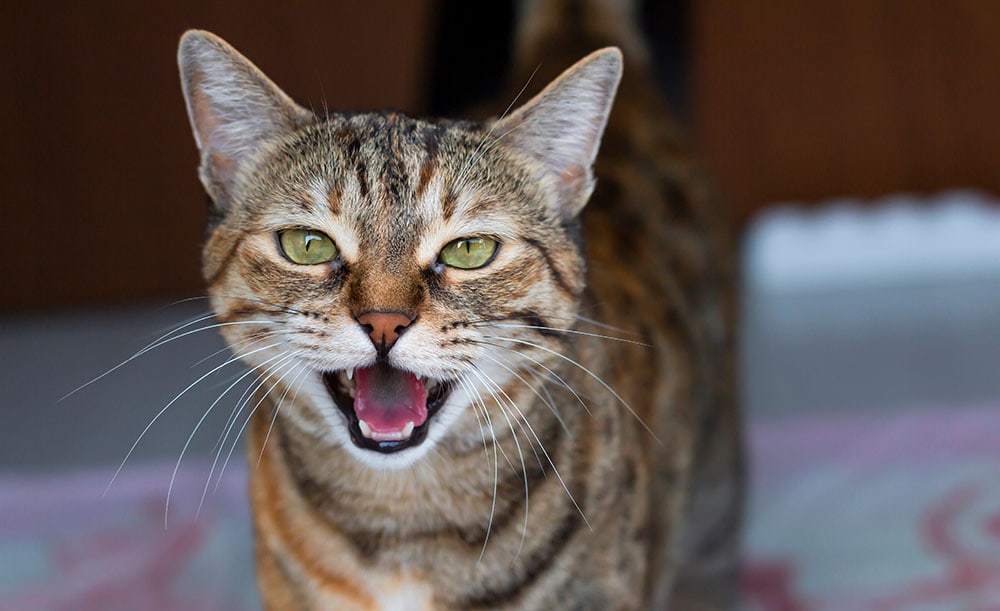
2. They’re Losing Sight, Hearing, or Smell
| Likelihood: | Moderate |
| Seriousness: | Moderate |
As humans age, we can start to notice a drop in some of our senses. With that in mind, it’s not surprising that cats can suffer the same fate as they get older.
Unfortunately, there’s not all that much we can do to help stop this process, but we can adjust their environment to make things a bit easier for them. If you notice any symptoms of a drop in sight, hearing, or smell, see if you can’t make a few small changes to make things easier for your cat.
3. They’re In Pain
| Likelihood: | Low |
| Seriousness: | High |
If your cat is sick or in pain from an injury, they can use their meowing to try and tell you that something is wrong. Could they have hypertension associated with heart disease or be suffering from osteoarthritis? The truth is that a lot of different disease processes can cause pain.
See if your cat is more sensitive in one area. If they are, there’s a decent chance that’s the area that’s in pain. If you suspect your cat is in pain, we recommend taking them to a vet for further diagnosis and treatment.
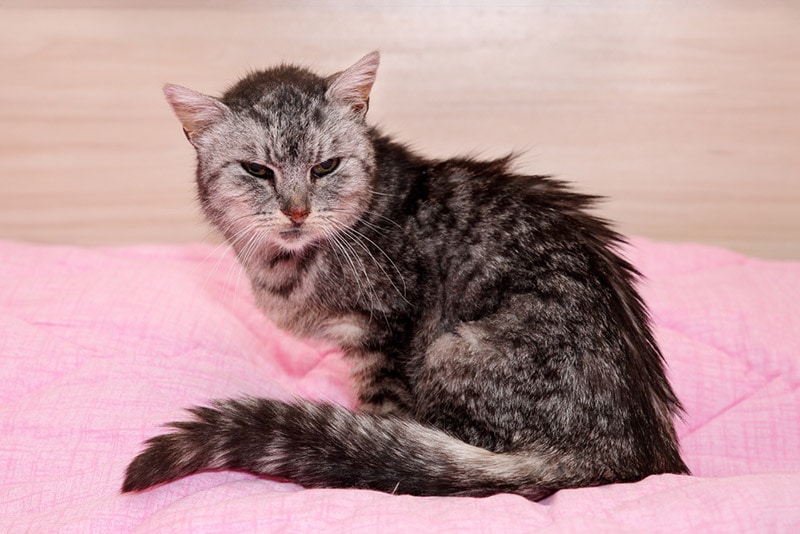
4. They Want In or Out
| Likelihood: | Varies |
| Seriousness: | Low |
If your cat has never shown an interest in going outside before, this likely isn’t the reason they’re meowing so much now. However, if they were an outside cat and you’ve only recently started to restrict their access outside, they could be telling you they want to go outside.
This doesn’t mean you need to listen to them and let them out, but they might not stop meowing unless you do. In the end, it’s up to you to figure out what’s best for your cat and whether you should give in and let them outside or if you just need to deal with a bit of meowing.
5. They Want Attention
| Likelihood: | Moderate |
| Seriousness: | Low |
While cats typically want attention on their own terms, when they want attention, they can get creative in how they let you know. Whether it’s rubbing up against you, batting at you, or simply meowing incessantly, they won’t start until you give them the attention they want.
You might be able to get away with getting them a few new toys to play with, but often, they’ll demand attention directly from you and no toy will help.
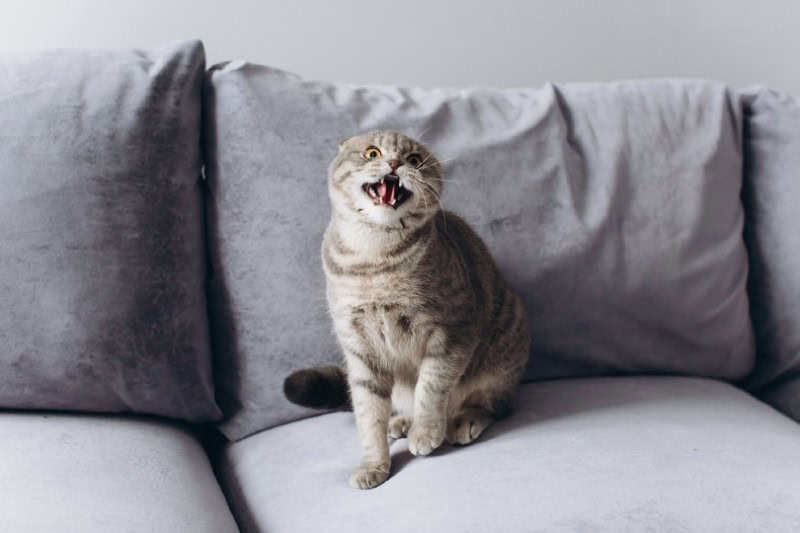
6. They Want More Food
| Likelihood: | Low |
| Seriousness: | Low |
If your cat doesn’t feel like you’re meeting all their needs, they’re going to let you know. And it really doesn’t matter if you are meeting all their needs; if they feel like you should give them more food, they’re going to try and tell you.
The only reason we have this likelihood as “low” is that you’ve likely already figured out how much food your cat needs, and if you’ve consistently fed them the same amount, they’re not likely to start complaining about it at an older age. But if you’ve recently changed their diet or how much you feed them, this might be the reason they’re meowing more than usual.
7. They’re Lonely
| Likelihood: | Varies |
| Seriousness: | Low |
This is another instance where the likelihood varies depending on recent life events for your cat. If you’ve always had multiple pets and now you don’t, this could be the reason. It could also be a trigger for your cat if you’re now spending less time at home than you were before.
But if there haven’t been significant changes in your cat’s life, this likely isn’t the reason they’re meowing more than usual.
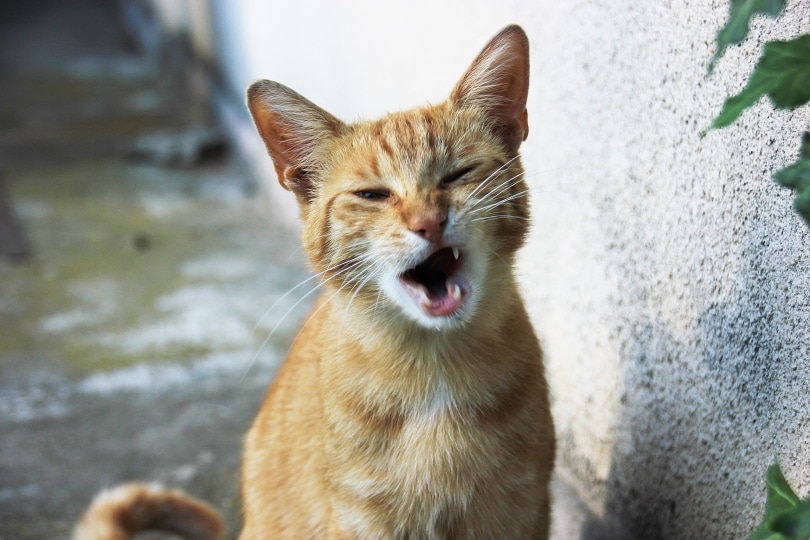
8. Central Nervous Problems
| Likelihood: | Low |
| Seriousness: | High |
A rare issue for older cats is a brain tumor of the central nervous system, which may, among other clinical signs such as incoordination, seizures, and visual deficits, may lead to a cat meowing more than usual. If you notice these things and suspect something may be wrong, it is critical to bring your cat to the vet for assessment. In many cases, advanced imaging such as MRI is necessary to make this diagnosis, and unfortunately, while chemotherapy, radiation, and surgery may be indicated in some cases, the prognosis is usually poor. Palliative care and eventual euthanasia are often opted for in cats with brain tumors.
Summary
Now that you know a few of the most common reasons an older cat might meow so much, it’s time for you to take a look at your fur child and try and, with the help of your vet, figure out why they’re meowing excessively With a little time and patience, you can figure out what is the underlying cause in order to give your cat exactly what they need!
Featured Image Credit: stock1000, Shutterstock



